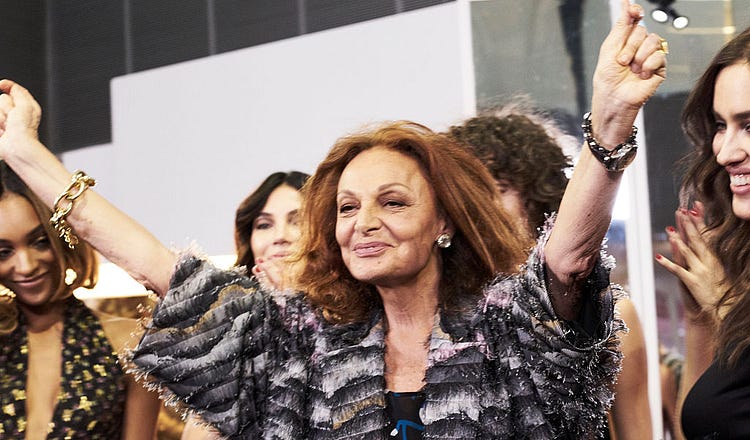Diane von Furstenberg Is More Than a Girlboss

Diane von Furstenberg in 2016. (Getty Images)
A new documentary frames the Belgian fashion designer’s career as a fight against the patriarchy. It’s so much more.
14
This piece was first published in our news digest, The Front Page. To get our latest scoops, investigations, and columns in your inbox every morning, Monday through Thursday, become a Free Press subscriber today:
The new Diane von Furstenberg documentary, Diane von Furstenberg: Woman in Charge, frames the 77-year-old Belgian designer as the world’s first…
Continue Reading The Free Press
To support our journalism, and unlock all of our investigative stories and provocative commentary about the world as it actually is, subscribe below.
$8.33/month
Billed as $100 yearly
$10/month
Billed as $10 monthly
Already have an account?
Sign In


